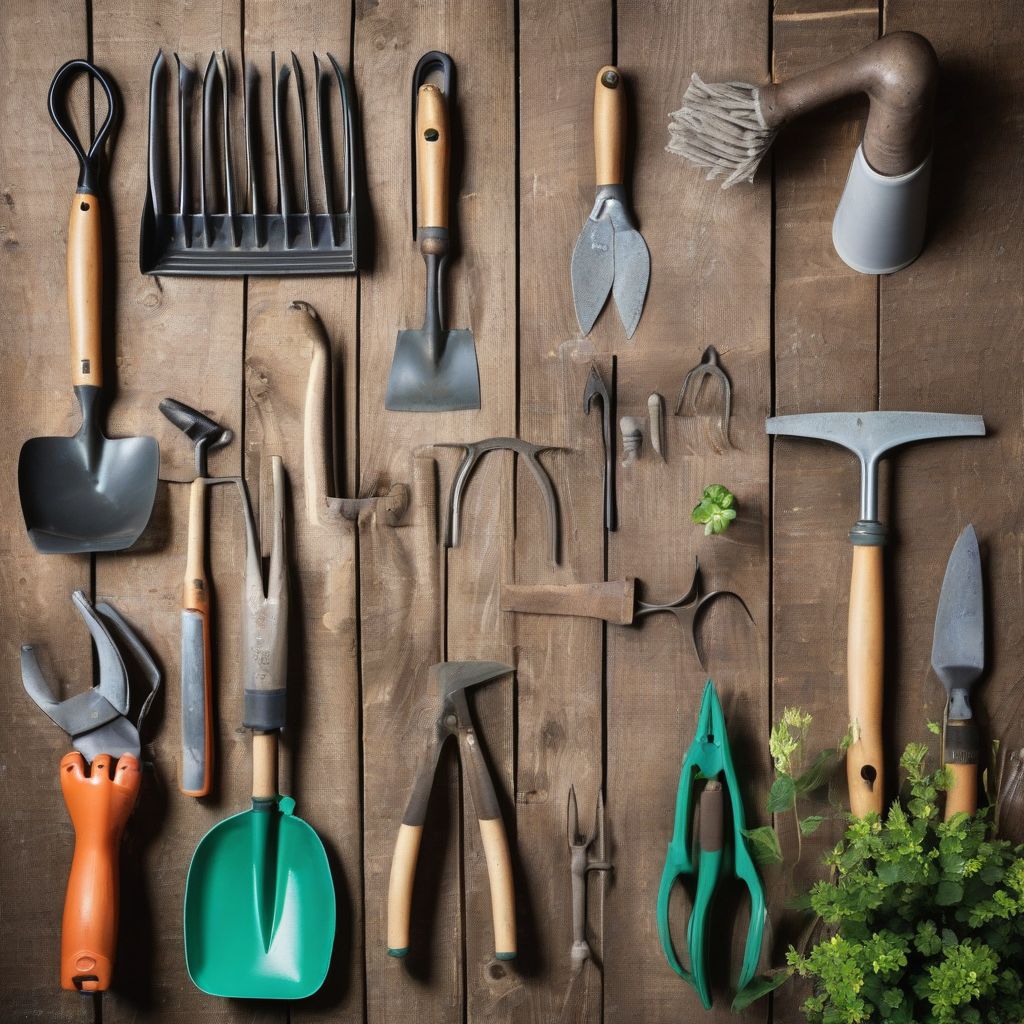Have you ever dreamt of plucking a sun-ripened tomato straight from your vine, the sweet juice dripping down your chin? Or perhaps savoring the crispness of a homegrown lettuce, knowing exactly what went into nurturing it? Organic gardening can make these dreams a reality, transforming your backyard into a haven of healthy, delicious produce. But where do you begin? The key to a thriving organic garden lies in having the right tools. This guide provides you with the essential tools for organic gardening beginners, empowering you to cultivate your own little piece of Eden.
Getting Started: The Basic Toolkit
Every successful organic gardener needs a foundation of reliable tools. These core essentials will simplify your tasks and ensure your plants flourish.
Hand Tools: Your Gardening Allies
- Trowel: A hand trowel is indispensable for transplanting seedlings, digging small holes, and weeding tight spaces. Choose one with a sturdy stainless steel blade and a comfortable grip. A pointed trowel is perfect for digging, while a scoop trowel excels at transferring soil and compost.
- Hand Rake: A hand rake is your go-to for smoothing soil surfaces, removing debris, and lightly cultivating the top layer of your garden beds. Look for a lightweight model with strong tines.
- Gardening Gloves: Protect your hands from dirt, thorns, and potential irritants with a durable pair of gardening gloves. Opt for breathable, water-resistant gloves that offer a snug fit.
- Pruning Shears: These are essential for trimming dead or diseased branches, harvesting herbs and vegetables, and shaping plants. Bypass pruners, which cut like scissors, are ideal for clean, precise cuts.
Larger Tools for Bigger Jobs
- Garden Fork: A garden fork is perfect for loosening and aerating soil, turning compost, and moving mulch. Look for a sturdy fork with four tines and a comfortable D-grip handle. As renowned gardening expert, Monty Don, suggests, “A good garden fork is the backbone of any organic garden.”
- Spade/Shovel: A spade or shovel is essential for digging larger holes, edging beds, and moving soil or compost. Choose a shovel with a pointed blade for digging and a square-nosed shovel for moving materials.
- Watering Can or Hose: Providing consistent moisture is crucial for plant growth. A watering can is ideal for smaller gardens and delicate seedlings, while a hose with an adjustable nozzle offers versatility for larger areas.
 Essential Organic Gardening Tools
Essential Organic Gardening Tools
Stepping Up Your Organic Game: Advanced Tools
Once you’ve mastered the basics, these additional tools can enhance your organic gardening experience.
Soil Care & Composting
- Soil pH Meter: Maintaining the proper pH balance is vital for nutrient absorption. A soil pH meter allows you to accurately measure your soil’s pH and amend it as needed.
- Compost Bin: Composting is the cornerstone of organic gardening. A compost bin allows you to transform kitchen scraps and yard waste into nutrient-rich “black gold” for your plants.
- Wheelbarrow: A wheelbarrow is indispensable for transporting soil, compost, mulch, and other heavy materials around your garden. Choose a sturdy model with a pneumatic tire for easy maneuvering.
Pest & Disease Control
- Handheld Sprayer: A handheld sprayer is perfect for applying organic pesticides and foliar fertilizers to your plants. Choose one with an adjustable nozzle for different spraying patterns.
- Row Covers: Row covers protect your plants from pests, frost, and excessive heat. They also create a microclimate that promotes faster growth.
Soil Health: The Foundation of Organic Gardening
Healthy soil is the heart of a thriving organic garden. Using cover crops can significantly improve soil health, enriching it naturally with essential nutrients. Learn more about the benefits of cover crops in our article, “How to Use Cover Crops to Enrich Soil Naturally” (https://organicgrowersresource.com/how-to-use-cover-crops-to-enrich-soil-naturally/).
Green Manure vs. Compost: Understanding the Difference
Green manure, another soil improvement technique, is often confused with compost. Understanding the difference between these two organic amendments can further enhance your gardening practices. Explore the distinctions in our article, “The Difference Between Green Manure and Compost” (https://organicgrowersresource.com/the-difference-between-green-manure-and-compost/).
Choosing the Right Tools for Your Needs
The best tools for you will depend on the size of your garden, your budget, and the types of plants you’re growing. Start with the basics and gradually add tools as your garden expands and your skills develop.
Conclusion
Embarking on your organic gardening journey can be incredibly rewarding. With the right tools and a little dedication, you can cultivate a thriving garden that produces delicious, healthy food for you and your family. Remember, gardening is a process of continuous learning and experimentation. Don’t be afraid to get your hands dirty, try new techniques, and enjoy the fruits (and vegetables!) of your labor! We’d love to hear about your gardening adventures – share your tips and experiences in the comments below!



